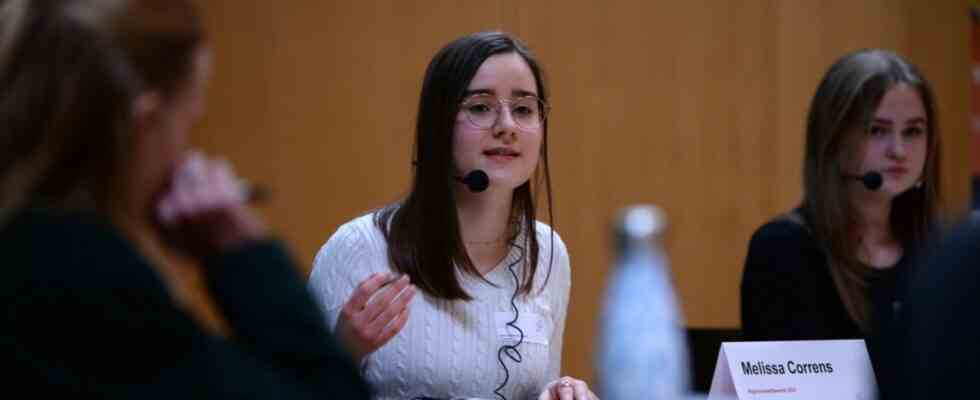A cultivated exchange despite differences in content is a cornerstone of democracy. How would it be if everyone lived this? Marlene Wolkstein from Haar looked at the professionals on the Internet to prepare for taking part in “Youth debates” and was not impressed: “Sometimes the debates in the school class are of a higher level than in the Bundestag.” The student from the Ernst-Mach-Gymnasium took part in the final round of the Upper Bavaria-East regional final of “Jugend debattät” in Garching on Wednesday. In order to prepare for this school competition, the pupils are taught everything they need to do in class: research, the development and articulation of arguments or the refutation of opposing positions.
The winners from twelve participating schools in the administrative district who traveled to the Werner Heisenberg-Gymnasium had a week to prepare independently for the announced controversial topics. You have reached the third stage of the competition, which comes to a head over five stages from the internal class debate to the national final in Berlin. During the qualifying rounds, they still debated in smaller classrooms. Now the finalists sit wired with microphones on a stage in front of the audience. Around 100 students and teachers are there and cheering.
Charlotte Hörning’s fan club from Dorfen: the audience is rooting for it.
(Photo: Robert Haas)
The debate takes place in two different age groups: grades eight to ten form the first, and the upper level from grades eleven to 13 the second secondary level. In the preliminary round, a jury selects the four most convincing students from each of the two levels, who carry out a final debate. The first-year students are considering whether a cap should be put on the daily water consumption per person.
They debate passionately and convince with specialist knowledge. Konrad Köhler supports the proposal vigorously. He has discovered debating for himself through the lessons: “What I enjoy the most is refuting the opposite position,” he says on the sidelines of the event. The speakers are only interrupted by the softly ringing bell, which indicates the end of their speaking time. At the end of the 24-minute debate, the jury leaves the gym to deliberate. Meanwhile, the students excitedly remain in their seats on the stage. An interactive vote on the issue via QR code offers the audience a welcome change.
The finalists of the second secondary school have to explain whether in their opinion only multi-family houses should be built in new development areas. This also includes sometimes giving the other person space. They use selected formulations, speak of “social rifts” and quote the Basic Law.
In the first secondary school, Melissa Correns from Rosenheim is the first, followed by Konrad Köhler from Vaterstetten. In the second secondary level, Konrad Thees from Erding wins, followed by Iris Woryna from Markt Schwaben. Marlene Wolkstein takes third place. The next step is for the two best-placed teams to go to the state finals in the Maximilianeum in Munich.

